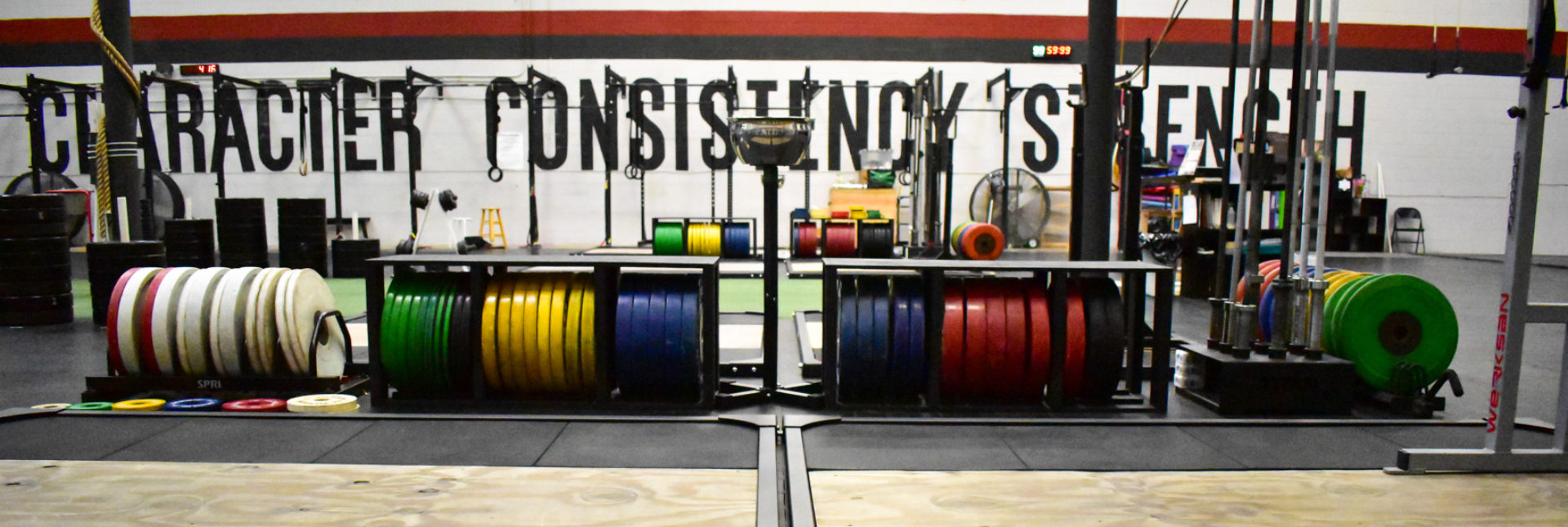The majority of Weightlifting coaches and athletes are involved with CrossFit at one level or another. Whether they used to do CrossFit or they’re a CF coach in addition to periodically coaching Weightlifting, the two communities are interconnected. Personally, I got my start in Weightlifting after doing CrossFit for almost 2 years and have been working in CrossFit gyms for my entire coaching career. So based on my experience over the years of coaching both Weightlifters and CrossFit athletes (and making the transition myself), here are 6 things that CrossFitters struggle with when making the switch to the sport of Weightlifting.
Adjusting to the pace of training
Training as a Weightlifter requires a complete mental shift from the mentality of a CrossFit workout. There’s absolutely nothing wrong with an “intense” workout of the day, but new Weightlifters need to understand that CrossFit and Weightlifting are two entirely different sports with two entirely different goals. Our training sessions are long, we take breaks between sets, and we are not racing against a clock. Even though it might look like we are just sitting around on our asses, training as a Weightlifter is just as mentally difficult as it is physically. Because of this extreme mental demand, training as a Weightlifter creates a unique type of fatigue that is almost indescribable which will quickly make you welcome the periods of rest during training.
Performing reps for absolute quality
This game is all about quality and consistency. To me, proper training as a Weightlifter is executing a lift to the best of your current ability and being able to replicate it on demand whether it’s 40% or 80%…all while working on correcting errors and improving overall lift quality. A well executed lift is like a timeless work of art or a fine wine. By looking at it, you know that there was considerable time and effort put into the creation process. Lifting X amount of weight doesn’t impress a Weightlifter or coach if it looks like garbage. We are impressed by excellent and skilled movement no matter how much weight is on the bar!
Squatting all. the. time.
Yes, I am aware that CrossFit athletes squat, but what I am referring to is squatting with high frequency. When training as a Weightlifter, you will be squatting in some fashion every single day. You might not back or front squat every day, but you will be squatting when performing the lifts and for most of my lifters, 80% is the minimum load for working sets. Weightlifters live in the bottom position of a squat and it can be a tough transition squatting under some kind of loading day in and day out, but give it time and the body will adjust.
Not power snatching/cleaning every lift
I’m a believer that incorporating power snatches or power cleans into a beginner’s program is detrimental to their technical development. For this reason, I use power movements very sparingly. In my mind, it is an accessory exercise for two reasons:
- We don’t compete in the power snatch or power clean (though, it is technically allowed in competition)
- Beginners tend to treat the power snatch or power clean as a completely different lift than a [full/squat] snatch or clean
The goal of performing a power snatch/clean is to develop timing and speed and the only difference is whether or not the catch/squat is at or above parallel. The mechanics are exactly the same, but most lifters can’t make the distinction between trying to pull the bar higher (which is an error in my mind) and pulling the body lower and until that distinction occurs, take it easy on the powers!
Eating more FOOD
Fueling the body is so very important, and with a primarily strength training focus, the body demands large quantities of the proper foods. Weightlifting places such a high demand on the body that if you are not adequately filling your “gas tank,” you will never perform to your potential. “But, I already eat SO MUCH FOOD. How could I possibly eat more?” Most of the time, I just automatically assume that whoever is saying that is eating 1/4 of what they should be. If you’re not to the point where you are literally sick of eating, you’re probably not eating enough. Your body will tell you when you need to eat more, you just have to know how to listen.
Exercising patience and composure
Failure is a guaranteed part of training as a Weightlifter. Even though we perform many different types of exercises, we have two lifts that we are trying to improve. Since the focus is so specialized, it is impossible to hide from your weaknesses. They are quickly and easily exposed which makes it different than CrossFit which has endless movements and skills to work on and improve. There is no moving on to the next skill when you’re feeling frustrated or just not performing — we have no choice but to perfect the things we struggle with to increase our snatch and/or clean & jerk. For those looking for a “quick fix” or “magic cue or correction,” it’s just not going to happen. I tell people all the time that Weightlifting will either chew you up and spit you out or teach you how to deal with personal failure and frustration…but for those who stick around in the sport, we know that both things happen over time. Improvement with anything is a gradual process. The journey from point A to point B is riddled with speed bumps and set backs, but with proper training, coaching, and patience, you will always achieve your goals along the way. The secret to Weightlifting is to trust the process and strive to make small improvements every single day.
Get started today with 813 Weightlifting at www.KeepPulling.com/LIFT or contact us below!


